‘The Hobbit’ Story Group 2: Roast Mutton
The age of Speculative Politics is over. The age of The Hobbit reading-group series is about to re-begin.
Since part 1, Hobbit hype has grown like Shire gardens all over the world. A second trailer and multiple television spots released for the film to release Friday, Dec. 14 (earlier in New Zealand).
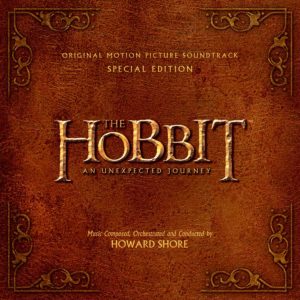
Yes, I’ve already pre-ordered mine. This time, thanks to rightfully higher demand, it seems we won’t need to wait years to hear the complete score.
A French website accidentally released 60-second preview clips from the film’s score by Howard Shore, then quickly took them down — though not before I, personally, was rocking out at my desk to “Blunt the Knives.” Then Empire went ahead and released the whole score, streaming, if you don’t mind no track division or pause button.
In fact, as I write this introduction to part 2, I’m temporarily breaking my new no-spoilers vow and listening to a few tracks. A few. Up until “Misty Mountains Cold,” sung by Dwarves.
It’s wonderful music.
Many have said Howard Shore “gets” Middle-earth better than film director Peter Jackson. Yet Jackson must be admired for, evidently, making a film with adaptation respect beyond mere fan-service. At least two Tolkien songs, with very few changes, will pass into the film. And the rest of the story seems to honor The Hobbit’s fantastic whimsy, as opposed to the more-serious atmosphere and themes of The Lord of the Rings books and film version.
Of course, no one truly knows Middle-earth as well as J.R.R. Tolkien himself.
And in that respect, we turn again to The Hobbit, specifically chapter 2, in which Bilbo the reluctant lucky-fourteenth member of Thorin Oakenshield’s Dwarf-company, first tries to put his “burglar” skills to the test. He nearly winds up, along with they, being treated as …
Chapter 2: Roast Mutton
- Read chapter 2, pages 27 to 30 (It was not the last time that he wished that!).
- Why do you think Bilbo, despite all his protests, find himself on an adventure?
- Have you memorized the Dwarves’ names by now? Do you know anything about their personalities or motivations? If not, is that a bad thing? Could a newer fantasy story include 13 characters who seem very much alike? Why did Tolkien “get away” with it?
- Bilbo was sadly reflecting that adventures are not all pony-rides in May-sunshine … (page 32). Imagining this, and perhaps recalling our own trips, is this sad or amusing, or both?
- “Now it is the burglar’s turn,” they said, meaning Bilbo. “You must go on and find out all about that light, and what it is for, and if all is perfectly safe and canny,” said Thorin to the hobbit (page 33). How do the Dwarves, and Thorin in particular, seem to regard Bilbo? How do their apparent attitudes add tension? Which makes the story more interesting, and thus keep us reading — “outward” struggles like the weather, or “inner” struggles?
-
Read pages 33 (Off Bilbo had to go …) to 39 (… before they were satisfied).
- Yes, I am afraid trolls do behave like that, even those with only one head each (page 34). Tolkien “speaks” to readers as if trolls are real (same with hobbits). Is that confusing?
- For those familiar with The Lord of the Rings, this scene could seem very different. Unlike the dumb monster trolls of that epic, these trolls talk, bicker, have names like “Bill Huggins,” and have possessions — including a talking purse! Is this at all weird?
- Why do you think Bilbo wants so badly to impress the Dwarves, even with the trolls?
- Read pages 41 (“Silly time …”) to the very end.
- Does Bilbo’s attempt to do “burglary” and impress the Dwarves seem to succeed or fail?
- How does Gandalf seem to view the Dwarves, and view Bilbo? After Thorin challenges Gandalf to tell where he went, why does Gandalf speak in riddles? Finally, here we see Gandalf doing some “magic” for the first time — how does this “magic” strike you?
































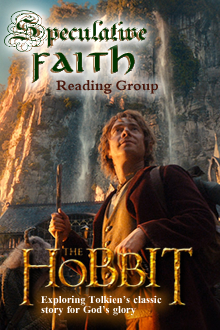
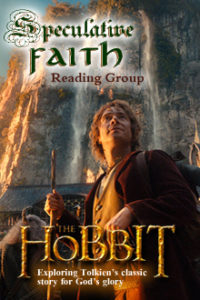
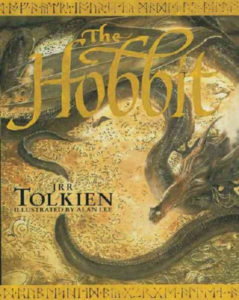


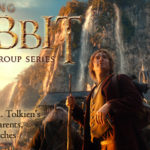






Bilbo’s involvement in the adventure was all Gandalf’s doing. I think Gandalf knew that Bilbo’s Tookish half would ultimately lead him to willfully accept the adventure.
It’s amusing because it is true to our experience during real-life “adventures.” Just as Tolkien depicts the reality of depravity in The Lord of the Rings, here he depicts the reality of petty awkwardness and bad attitudes. Despite the glorious vision that Tolkien writes of, his works are also very down-to-earth and real.
Based on the previous chapter, we know that the Dwarves aren’t confident in Bilbo’s ability to fulfill the role in which Gandalf has placed him. Bilbo’s own internal struggle is his ongoing reluctance, which I believe is continually brought up — “It was not the last time that he wished that!” (p. 32). Therefore, the internal tension is that both the Dwarves and Bilbo do not fully trust Gandalf’s plan.
I think Tolkien uses direct narrative interludes like this to refer to the cultural fairy-tales that were regarded disdainfully as children’s stories at the time when The Hobbit was published. In doing so, he’s both treating the fairy-tale tradition with respect and also subtly hinting that his own work is much more carefully constructed than the shallow treatment given to organic fairy-tales. The phrase “even those with only one head each” very subtly insinuates that Tolkien’s worldbuilding is above the simple level of fairy-tales in which one might encounter unrealistic three-headed trolls.
As in LotR, Tolkien is translating for his readers here, I beleive. The Common Tongue is not really English; it is only “translated” into English for our convenience. Rohirric isn’t really Old English/Anglo-Saxon, but it is rendered that way in the narrative of LotR. I’m guessing that The Hobbit is just being “translated” one step further than LotR
I have no idea how Gandalf’s magic works, but he does seem to have supernatural intuition. Gandalf returned just in the nick of time because he “had a feeling.” He knew exactly how the trolls would react when he mimicked their voices. I wonder if the micking of the voices might have been through perception; he was able to make the trolls hear what he wanted them to hear, rather than actually changing his voice. A professor told me that he thought Gandalf’s real power (whether “magical” or mundane) is his ability to influence and to guide people. I can see that here.